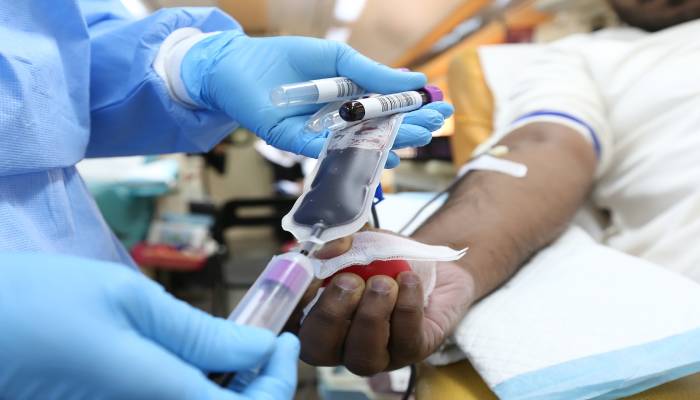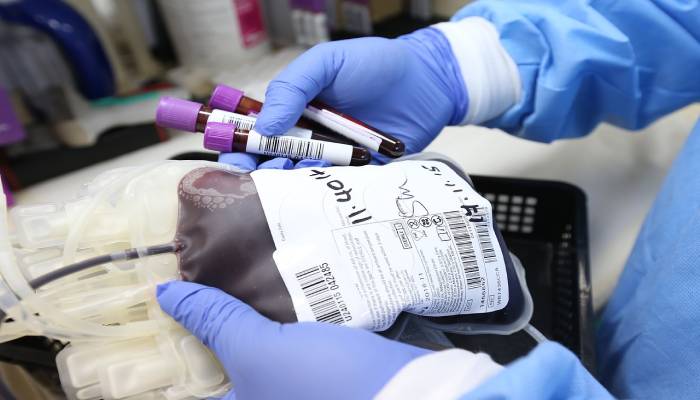A selfless way to help people is to donate blood. Blood donors benefit patients who need transfusions for all kinds of medical conditions, and for a number of reasons, you can plan to donate blood.
Can you donate blood if you have diabetes?
Up to three patients can be saved by a pint of donated blood. When you have diabetes, and if you are allowed to donate blood, there are a few criteria that you will need to follow.
Is giving blood safe for me?
It’s basically safe for you to do so if you have diabetes and wish to donate blood. Type 1 and type 2 diabetes people are eligible for blood donors. Before you donate blood, you should get your illness under control and be in good health.
Getting your diabetes under control means you are keeping your blood sugar levels safe. This allows you to be vigilant on a regular basis about your diabetes. Throughout your day, you need to be mindful of your blood sugar levels to ensure you eat a healthy diet and exercise adequately.
Live a balanced lifestyle will help keep the levels of blood sugar in a healthy range. To better treat your diabetes, your doctor can even prescribe such drugs. Your ability to donate blood does not affect these drugs.
Speak to the doctor previous to your donation if you wish to donate blood but are worried about your diabetes. They will answer any questions that you might have and help you decide whether this is your best choice.
During the donation process, what should I expect?

Health screening
There is a verification procedure for the blood donor center that allows you to report your pre-existing health issues. It’s also a time that you can be tested by a licensed Red Cross practitioner and assessed by your fundamental vital statistics, such as your temperature, heartbeat, and blood pressure.
To assess the hemoglobin levels, they can take a small blood sample (likely from a finger prick) as well. You will need to share your diagnosis at the screening if you have diabetes. You should ask additional questions about individual screening.
You should ensure that you have knowledge of any drugs that you may be used to treat your diabetes. You should not be disqualified from these diabetes drugs from donating blood.
The following requirements must also be satisfied for people who donate blood, independent of whether they have diabetes:
- In general, living in good shape and on the day you donate
- Weighing at least 110 kilos
- Be 16 or older (age threshold varies according to state)
- If you’re not feeling good on your blood donor day you should reschedule your session.
Other health issues and causes that can prohibit you from giving blood, such as international travel, exist. If there are other reasons, wellness or otherwise, consult with your blood donor center that can prohibit you from donating.
The Blood donation

The whole process of blood donation takes about an hour. Usually, the time spent actively donating blood lasts about 10 minutes. When you are giving blood, you will be sitting in a comfortable chair.
Your arm will be sanitized and a needle implanted by the person helping you with the donation. Generally, just a small degree of pressure, equivalent to a poke, would be caused by the needle. You shouldn’t feel the discomfort after the needle went in.
How can I prepare myself for donating blood?
There are a couple of ways you can plan to ensure your donation is successful before you want to donate blood you Should:
- Drink plenty of water right up to the gift. A few days prior to your planned contribution, you can increase your water consumption.
- One or two weeks before the gift, eat iron-rich foods, or take an iron supplement.
- The night before your gift, sleep tight. Intend to get eight hours of sleep or more.
- Eat nutritious meals leading up to and after the gift. When you have diabetes, this is extremely important. It is essential to maintaining control over your condition to sustain a balanced diet that maintains your blood glucose levels down.
- Limit caffeine on the day of the gift.
- Bring a list of the drugs you are taking at the time.
- Bring documents, such as a driver’s license or two other identification forms, with you.
What can I expect after donating blood?
You should monitor the blood sugar level after the donation and try to maintain a balanced diet. For 24 weeks after your gift, try adding iron-rich foods or a supplement to your diet. You can, in general,
- When your arm is stiff, take acetaminophen.
- To stop bruising, keep the bandage on for at least four hours.
- When you are lightheaded, relax.
- For 24 hours after the gift, stop strenuous exercise. This requires exercise and other activities as well.
- Following your gift, increase your fluid consumption for a few days.
If you feel ill following a blood donation or are worried about your fitness, call your doctor immediately.
Does the type of diabetes make a difference?

Diabetes results in altered levels of blood sugar due to the body not making or utilizing insulin as well as it should.
According to the CDC, in people with type 1 diabetes, the body makes no or very little insulin, which is the compound that helps balance sugar in the blood. As a result, they must rely on insulin injections to get this insulin.
People with type 2 diabetes have become resistant to this insulin, and they must rely on outside sources or other medications to help them control blood sugar levels.
In both cases, how well a person manages the condition will be the only factor affecting whether they can donate blood. People with either form of diabetes who manage their blood sugar well should have no problem donating blood.
Anyone with diabetes will need to monitor their blood sugar levels closely ahead of donating blood to ensure that they are within the acceptable range on the day of the procedure.
[READ Top Protein Drinks For Diabetics Which Considered Underrated ]
What is the process of blood donating
The blood donation procedure for those with diabetes is just the same as it is for any other blood donor. However, if this is required, a person can carry any equipment needed to track and change their blood sugar levels.
Before the procedure
The person would need to fill out some paperwork before the donation, including the necessary documents to register as a donor. Legal means of identification such as a driver’s license or passport would also be mandatory for them.
The person will be asked questions about their physical fitness and medical records by the attendant. They’ll inquire about some recent vacations as well.
Then the attendant will take the basic vitals of the person, such as heartbeat, blood pressure, and temperature.
The donation process starts after this mini check-up.
During the procedure
The process for blood donation itself is relatively straightforward. The attendant cleans a place usually on the arm of the individual, where it is easy to see the veins. To start extracting blood, they will then insert a needle into the vein.
Blood is drawn into a bag with all blood donors. For a unit of blood, which is around 1 pint, the procedure takes approximately 8–10 minutes.
It can take up to 2 hours to donate other blood products through processes such as apheresis, but the procedure is much the same.
The blood is drawn into a system that filters out the appropriate substance instead of drawing it into a bag. The remainder of the blood will then be infused back into the bloodstream of the human.
After the procedure
The attendant will mask the needle injection region with a bandage until the operation is over.
For around 15 minutes, they may ask the person to rest and can give them basic food, juice, or water. To allow them more power over what they eat, people with diabetes may choose to carry their own foods or beverages.
It is necessary to routinely track blood glucose levels after donating blood.
In the days that follow, everyone giving blood should look for themselves. This self-care requires drinking more water to keep the body hydrated and eating more foods high in iron and minerals to help replace the missing compounds due to blood donation.
Summary of the overall procedure
It can be difficult for people with diabetes to regulate their blood sugar and they often have to rely on insulin to manage their levels. While diabetes and blood sugar levels can affect a person in other ways, it does not change their ability to donate blood if they can handle the disorder well.
During rehabilitation, individuals with diabetes should pay careful attention to their blood sugar levels, as they will need to make improvements to their insulin levels when they recover.
READ THIS NEXT
What Happens If I do Pushups Every Day
What is The Purpose of Medical Face Masks
What are the Benefits of Carrot Juice
How Many Calories in a Chicken Wing

Comments are closed.